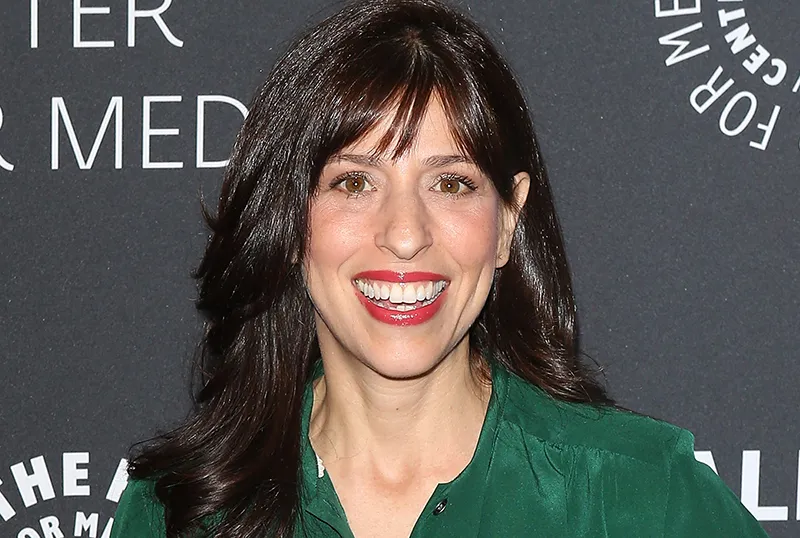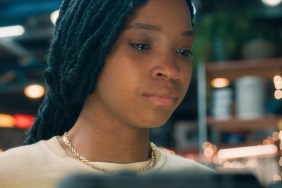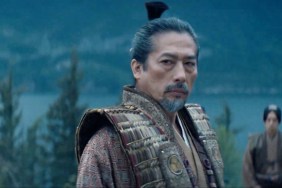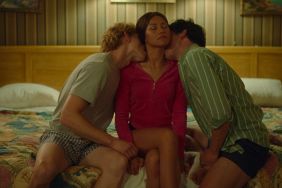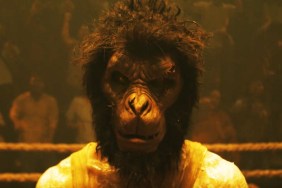ComingSoon.net had the opportunity to speak with screenwriter Jessica Goldberg about adapting directors Joe and Anthony Russo’s take on the crime drama Cherry starring Tom Holland. Goldberg talks about her personal connection to the story, how she and co-writer Angela Russo-Otstot visited the Russo’s hometown of Cleveland, Ohio — the setting of the novel and where the movie was filmed — while discussing how the city was “really ravaged by the opioid crisis,” and much more. Based on the book written by Nico Walker, Cherry will release globally on Apple TV+ on Friday, March 12, 2021. You can check out the full interview below!
Goldberg’s credits also include Netflix’s Away, Hulu’s The Path, NBC’s Parenthood and Deception, and the 2013 series Camp.
RELATED: Tom Holland’s Character is Shady in New Cherry Clip
Cherry follows the wild journey of a disenfranchised young man from Ohio who meets the love of his life, only to risk losing her through a series of bad decisions and challenging life circumstances. Inspired by the best-selling novel of the same name by Nico Walker, Cherry features Tom Holland in the title role as an unhinged character who drifts from dropping out of college to serving in Iraq as an Army medic and is only anchored by his one true love, Emily (Ciara Bravo). When Cherry returns home a war hero, he battles the demons of undiagnosed PTSD and spirals into drug addiction, surrounding himself with a menagerie of depraved misfits. Draining his finances, Cherry turns to bank robbing to fund his addiction, shattering his relationship with Emily along the way. Brought to the screen in bold, gritty fashion by visionary directors Anthony and Joe Russo, Cherry is a darkly humorous, unflinching coming-of-age story of a man on a universal quest for purpose and human connection.
You can get your own copy of the book by clicking here!
Additional cast includes Ciara Bravo (Wayne) as Cherry’s wife, Kelli Burglund (Now Apocalypse), Jack Reynor (Midsommar), Forrest Goodluck (The Revenant), Jeff Wahlberg (Dora and the Lost City of Gold), Michael Gandolfini (The Deuce), Kyle Harvey (The After Party), and Thomas Lennon (Reno 911!).
RELATED: Lady in the Lake: Natalie Portman & Lupita Nyong’o to Star in New Apple Miniseries
Cherry was adapted by Jessica Goldberg (The Path) and co-written by Angela Russo-Otstot (The Shield). The movie is produced by the Russo Brothers, Chris Castaldi, and studio president Mike Larocca under their AGBO Films banner, alongside CEO Jonathan Grey and President Matthew Rhodes under their The Hideaway Entertainment banner. The movie is executive produced by Todd Makurath and Jake Aust from AGBO and The Hideaway Entertainment’s Kristy Maurer Grisham and Judd Payne.
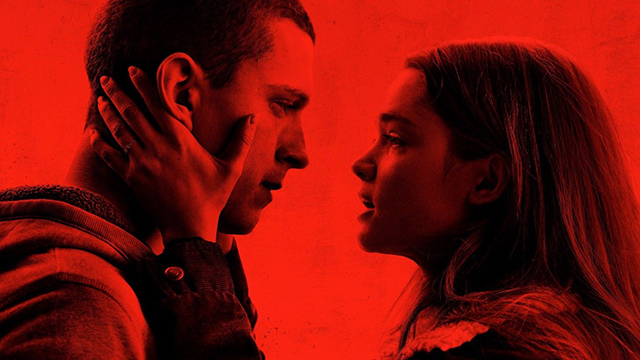
ComingSoon.net: Michelle the publicist was just telling me that you actually have a personal connection to the material. Can you kind of elaborate on that?
Jessica Goldberg: Well, I think who doesn’t a little bit? But we’ve all sort of I think been touched by addiction. That’s sort of where my, when I read the book, besides falling in love with this amazing voice, this poetic, lyrical writer, this opportunity to write about this crisis that’s really ravaged parts of America felt really, you know, like a real opportunity for me. You know, I grew up in a small town in upstate New York, Woodstock. So we had our share of kids and young people struggling with addiction.
CS: I don’t think drugs and Woodstock have ever been associated together.
Goldberg: No, no. Yeah, the name says it all, so yeah.
CS: But yeah, it is my understanding that this was a very hot book. How did it sort of come to you to adapt it and what was the edict guiding that process?
Goldberg: You know, so I had been working with the Russos and Angela [Otstot], who’s their sister, on another adaptation of another book for a screenplay. And you know, this never happens. Usually in Hollywood, you have to like, have seven meetings and get notes and pitch to 10 people and wait by your phone. But they just called me up and they said, hey, we’re going after this book, will you read it? And we’d love for you to help out with it if you respond to it. So I got this early copy of the book. And I guess it was very complicated, them optioning the book, because Nico was in prison and they had to wait until he had enough minutes to call. And then they would get cut off. One time they tried to make a three-way call and you know, the prison won’t let you do that.
So basically, I read the book in the interim and I just fell in love with it, like I said, and I also just thought like, oh, who gets to make a movie this intimate with filmmakers that make films with that much scope? It just doesn’t happen. So I said yes, please. And then I think it was like, maybe a couple of months later they got the rights to the book and Ang and I just like, dove in. The first thing we did is we went to Cleveland. They’re from Cleveland. So it was very personal to them. They had lost quite a few people. They had family members. You know, Cleveland was really, really ravaged by the opioid crisis.
In fact, when Angela and I went, we were talking to some young people who had been there at that time and they said there was like, they had to bring in freezer trucks, there were so many bodies. So it was really moving. And we sort of walked the walk of the book. We went to all the different banks that he robs. We went to the houses that he lives in in the book. You know, it’s all real streets and places, just to get a real sense of place, because I think you’ve seen the film. The place, it’s another character in the movie and it’s deeply important. And that kind of industrial American, a little depressed, but also like, pockets of incredible beauty and wealth. That place was very important for me to know.
CS: Yeah, and who kind of came up with the concept of representing a lot of these people and places as like, a shitty bank or sergeant whoever?
Goldberg: I think we threw that in the script because the one thing we really struggled with is, the book has so much internal narration. It’s really like, inside the thoughts of this guy, and that way it’s like people had compared the book to like a Holden Caulfield for the 9/11 generation, sort of Catcher in the Rye, you know? And how do you express that person in a film? And that’s how he saw the world. He saw like another shitty bank. So anything in the beginning of the film that we could do to sort of capture how this man saw the world, we just threw in there. And some of it worked, some of it didn’t. And one thing that I loved to tell, because I had never experienced this, and it happened to me with the first film I started working on with the Russos is they literally sit at a table with you and read the movie. So it’s very like, I just had never had that process. Like they take your script, and Joe Russo like, literally reads the script out loud. And then, he stops, and the Russos talk. And it’s just like, a very creative, inspiring environment for great ideas, and a lot of play, a lot of experimentation comes out of that.
CS: Yeah, I hadn’t even thought of the Holden Caulfield connection, but I guess the way he perceives the world, it’s like everybody’s a phony and that.
Goldberg: Yeah, but I mean, that’s one of the things that certainly the voice of our narrator felt. And I mean, as the film goes on, it was sort of a conscious decision of the Russos that that narration sort of goes away. You know, he loses his ability to narrate, in a way, because he is so ill. But you know, certainly in the early parts of the film, that there’s a lot of that narration.
CS: Yeah, and I mean, obviously Nico comes from a literary background. And at the beginning of the film, he’s in college. And I think I remember there’s a scene where he and his wife are reading, I think it’s an Edward Albee book?
Goldberg: Oh yeah, they do. They read a play together. Oh, they read – yeah, that’s right. They’re reading a one-act play in college. I think that was beautiful, yeah.
CS: Was there any significance to that specific play?
Goldberg: Well, I don’t even remember exactly which play it is, but as far as I know, there was so much – I mean, most of the Albee I know, like Martha and George, there’s the toxicity between men and women is quite – it’s a subject.
CS: Oh okay, yeah. So it kind of becomes a little sub-textual comment.
Goldberg: Yeah.
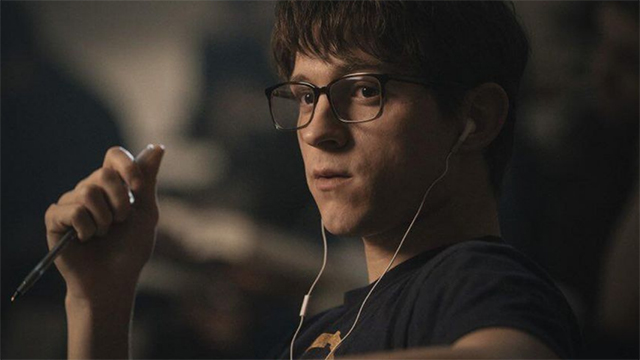
CS: You’re a screenwriter, so I’m assuming structure is a huge part of your life. And I know the Russos are huge on structure. I’ve heard them say there always has to be the page 10 inciting incident and things like that. And I mean, to me, I saw the film as being more of a five-act structure than a three-act structure, but could you tell me kind of how you approached it?
Goldberg: You know, I mean I think that the movie is broken up into chapters, which the book is, as well. And that became sort of the template. But it seems like you’ve read the book.
CS: No, I haven’t.
Goldberg: Oh you haven’t read the book? Oh, okay. Yeah, so one of the things that the book does not sort of focus on is that love story. And that became our way to you know, just shape the movie and have it so that we could really emotionally invest in these people. In the book, there’s sort of a series of women that Cherry gets involved with. And Emily comes back at the end, but that felt like a way to shape the story because I think what we decided with this is that the hardest part was how do you keep people deeply invested in these characters? He goes to such dark, dark places, like how do we care? Yeah, so I think that that helped us. And then the chapters sort of framed what each section was about. So you have the beginning, the early life and then you go to boot camp, you go to war, the dope life. So that was a way to structure the story, but I’m sure that it’s probably less structured than some of their other movies.
CS: Interesting. Yeah, because I know they’re big sticklers for that kind of stuff. For me, in terms of storytelling, I think it reminded me a lot of Scorsese and the sort of series of films. But I think a big fundamental difference is I think in movies like Goodfellas or Casino or Wolf of Wall Street or even Irishman, I feel like they’re all similar in that they’re all kind of half, crime is awesome, and then the second half is always, crime doesn’t pay. They’re always kind of structured that way.
Goldberg: Yeah.
CS: And that’s a little reductive, but Cherry, it feels like the point of view is almost like nothing is awesome, like there is no high point, it’s just kind of low, low, low, low. Can you talk a little bit about the point of view?
Goldberg: No, you know, I guess for me, I feel like connection is what we’re struggling to make in life, and certainly Cherry is. It’s very existential. But he finally makes this connection with Emily and it’s really profound. And because he’s like, I don’t know, 21 and doesn’t have the tools when she breaks up with him, he makes this like, kneejerk decision to go fight in Iraq. And don’t forget, like it was right after 9/11 and a lot of kids were signing up because they felt like an obligation and a sort of gung-ho spirit. I mean, he never does. He always has that lens. But I do think what I loved about the character is that he is trying to find something to fill like that emotional hole that we all have.
CS: Right.
Goldberg: Or that many of us have. And then, when he comes back, there’s no tools, there’s no infrastructures in place to help him heal how much worse everything has gotten.
CS: Well, right. Yeah, exactly. And I mean, obviously like Scorsese’s movies are about criminals, but I don’t see Cherry as a criminal. I see him as a victim because like, every pillar of society sort of fails him – school, work, banks, the army, doctors, friends, even marriage. The only institution that seems to help him in the end is prison.
Goldberg: Yes, it does. It’s so interesting. And you know, even when he’s committing those crimes, he’s trying to be polite. And he’s just desperate. Like you know, he’s throwing up in his shirt. He’s please and thank you. He doesn’t even want to be doing it, but now that he’s addicted, he has no way out. And it’s a tragic portrait. It’s funny. And I think, but it’s very real.
CS: Yeah. And one particular thing that interested me is to get a little bit into spoilers, but there’s the character of Coke & Pills, and there’s this kind of odd gap where he kind of leaves a bank and then they find him and he’s been shot and they don’t know what happened to him. Is the implication that Cherry might have shot him or a guard might have shot him? What is –?
Goldberg: That’s a great question. I don’t think it’s Cherry, but you know, yeah. It’s the mystery of this kind of world that none of these kids should be in. They are definitely not Scorsese gangsters, you know?
CS: No, oh no, no. And that’s kind of what I –
Goldberg: Yeah, befuddled young people.
CS: Yeah, and they have no real plan. And but it also, I think it says a lot about the institutions as well, that this was not a master thief. This is not Danny Ocean. He has no real plan, but he seems to just keep getting away with it and getting away with it. And he has to make the decision to turn himself in.
Goldberg: Like that’s one thing I love that we sort of imposed a little bit on the film, was this idea that it does come from him to end it.
CS: That wasn’t true to real life.
Goldberg: You know, it’s so hard to know what real life is. But because Nico felt really strongly that the book be treated like a work of fiction. And that isn’t really – you know, I do think in the book he is exhausted, but it’s a little more pointed in the film, that sort of choice to end this thing. But you’re right, that all these institutions fail. I mean, one scene that’s so poignant to me is when he comes back and he finally gets seen by a military doctor and the doctor says, well, have you heard of Oxycontin? And it’s like, all right, whatever, I give up, you know?
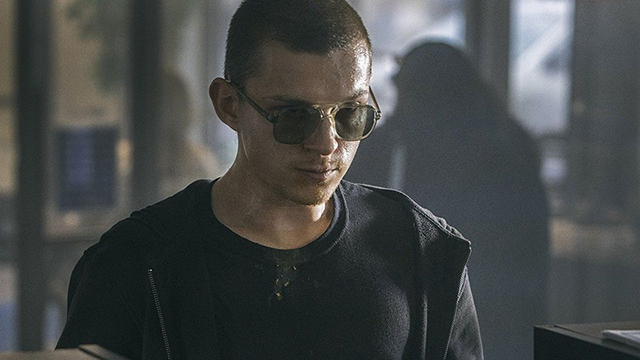
CS: Yeah, sure. And that is 100 percent true to the way a lot of – not all doctors, but a lot of doctors operate under the thumb of the pharmaceuticals and that is part of the vicious cycle that the film is portraying. But one thing I’m curious about is when you saw the final film, was there a big thing that you saw that you’re like, wow, that survived every draft from inception to the finish line?
Goldberg: Well, there are a bunch of things. There’s a lot of moments in the beginning. I’ve always loved that moment where Cherry is on ecstasy and he sees Emily at the party, and the dorm room, that was always there. You know, let me think. Oh, you know what scene I just remembered working on so much was the safe. You know, the whole safe thing of throwing it out the window and throwing all the drugs down the toilet, like that whole mania was something we worked on a lot. And the sort of end of the movie, we were always going to end with him in prison, but I have to admit, I was so surprised and so moved and so thankful by that last image, when he gets out and it feels kind of very hopeful because I didn’t quite know what the ending would be, what the last image of this film would be.
CS: Right. Well, I mean, at the end of the day, in terms of the relationship, you’re kind of portraying this, I don’t know if you’d call it like a folie à deux. It’s this couple and they’re in this sort of codependent cycle, and somebody had to break that cycle. So in a way, he’s not just like, saving himself at the end, he’s also saving his wife.
Goldberg: Yeah, and you wonder because he’s been in prison. I wonder what she had to go through, what her journey was on the streets. It does make you think like, he was in this place and they’re able to really like, go internal and dig deep, but what was her life like for those years?
CS: Yeah, no, exactly. And what was the timeline in terms of when did you sign on and start working?
Goldberg: I started with them right away, but I’m trying to remember, like life to me has become like an absolute blur in COVID.
CS: Oh totally.
Goldberg: So it was very fast. Well, first of all, I find movies are just so hard and so long. But I think we started working on it a couple of years ago, and then it was like a year later, a year and a half maybe, they were making the movie. Yeah, it was quite a – from the very beginning, from them just calling me and saying hey, you want to help out on this movie, to that was quite fast for me.
CS: Right. And the fact that you were working on this with them while they were kind of simultaneously in this Marvel world dealing with whatever, 50 trailers in the studio parking lot and all.
Goldberg: I remembered that. You made a memory, gave me a memory. I would go to the studio and wait, sit in the conference room and they would come out and whatever, a screening or editing they were doing, and then come in. They would work on this movie for a few hours. And yeah, it was really wild to watch them juggle. But I learned so much doing some of the press with them, and I didn’t realize they came up through Soderbergh, and then he had this, Soderbergh has this philosophy like you do one for them and one for you. And I heard them say that they had done all those movies to be able to do this, and that was quite moving to hear.
CS: Yeah, oh yeah. I guess they’re at the point now where they could probably do like, quite a few for them.
Goldberg: Yeah. This isn’t a movie, but a studio isn’t going to make this movie.
CS: No. Yeah, well that is the thing is, it was a pleasure for me to watch this because it was cool to see a smaller story like this, but with resources behind it and with a real A-list cast, A-list directors, and real – clearly they had a lot of support behind them because of their success. You don’t see that level of commitment anymore for these sort of mid-range films.
Goldberg: That’s so true. I mean, that’s why for me, it was such a thrill because I’m always drawn to really difficult character-driven stories. Like that’s what I want to write and that’s why I have probably a struggle getting movies made. But so to be able to work on that and know that there would be a brilliant DP and a beautiful score and just this epic scope to this intimate story, wow.
(Photo by Michael Tran/FilmMagic via Getty Images)
